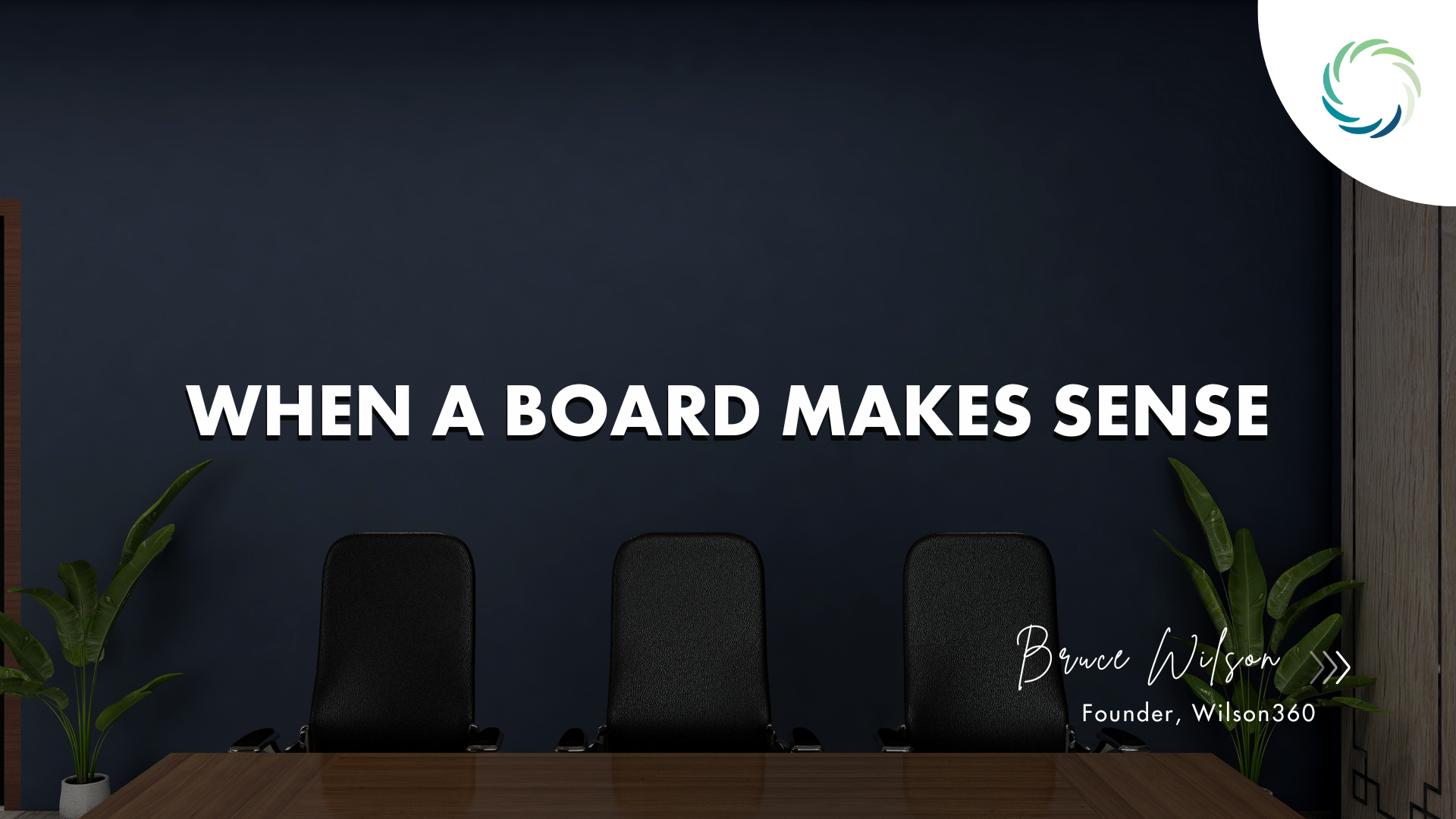
When a board make sense
by Bruce Wilson
If you’re looking for ways to accelerate growth, an outside group of professionals can help you become more effective at accomplishing big goals faster. I often get asked, when is a board necessary? It is not an easy question to answer. It depends on the size and structure of your company, its strategic requirements and how you see your future.
You don’t have to be a big company to benefit from a board’s collective wisdom. In fact, most start-ups and landscape companies of every size rely on ad hoc advisors — an effective strategy until you’ve reached a stage in your company’s growth life cycle where you need fiduciary guidance or extra oversight.
Peer groups and peer boards are popular options for many CEOs who find that the support, structure and unbiased feedback they receive from peers has pushed them to greater growth and increased profits; however, they are often less well-equipped to help your company make challenging decisions or raise capital for major growth.
A next level alternative is an advisory board. Advisory boards are relatively easy to create, assume less risk, are less costly than a board of directors and are more flexible as members can serve only as long as they are needed. Advisors are primarily consultative in their role and don’t have any official voting rights, legal responsibility or liability to the company. When a company has an advisory board, the company’s CEO — in the role of senior executive or chairman of the board — has the final say.
A board of directors, on the other hand, is a formal elected group with legal and fiduciary responsibilities in that their obligation and responsibility to your company and its shareholders is much higher. Their impact is higher, too, including the power they hold to fire the owner. If your business is a corporation, then you are required by law to have a board of directors, with the caveat that depending on your particular organizational structure and your state, one or two directors may be all that’s legally required.
If you’re considering a board structure for your company, you’ll want to look first at what their purpose and role will be, and identify a mix of external and internal candidates with targeted knowledge and direct experience, such as: trusted mentors, retired CEOs, CPAs, attorneys, finance experts, marketing and mergers and acquisitions specialists who know the terrain, and stakeholder representatives who have relevant connections you can leverage.
What I’ve found useful when choosing board members is to think about your areas of need and how their wisdom can move your business forward. Ideally, board members should be able to provide guidance on the execution of your strategic plan, provide financial oversight and accountability, manage risks as they arise, make decisions about acquisitions, capital structure and allocation of resources, decide on executive compensation and the amount of debt your company can comfortably take on to grow, and the best way to scale, expand or exit — all in service of advancing your mission and maximizing your impact over the long-term.
From my experience on both sides of the boardroom table — being a CEO reporting to a board and being on a board serving a CEO — you need a strong executive team to help you navigate board dynamics, and you can expect board members to do their job and challenge you.
Corporate growth strategy is complex and challenging and I recommend that before determining your board strategy, consult the laws in your state with help from an experienced local business expert. You should read, “Boards at Work: How Corporate Boards Create Competitive Advantage,” by Ram Charan.
The more you learn and the more you prepare, the more you can strengthen your company’s capacity for effective governance and plan for the future in a results-oriented way.
Words of Wilson features a rotating panel of consultants from Wilson360, a landscape consulting firm. Bruce Wilson is founder and chairman of Wilson360 (formerly Bruce Wilson & Co.) He can be reached at [email protected]
Ready to join a Wilson360 peer group or learn about starting an advisory board? Take the next step in advancing your business. Contact Wilson360 now for expert guidance.
Reprinted with permission. GIE Media. Lawn & Landscape November 2024 (c)

